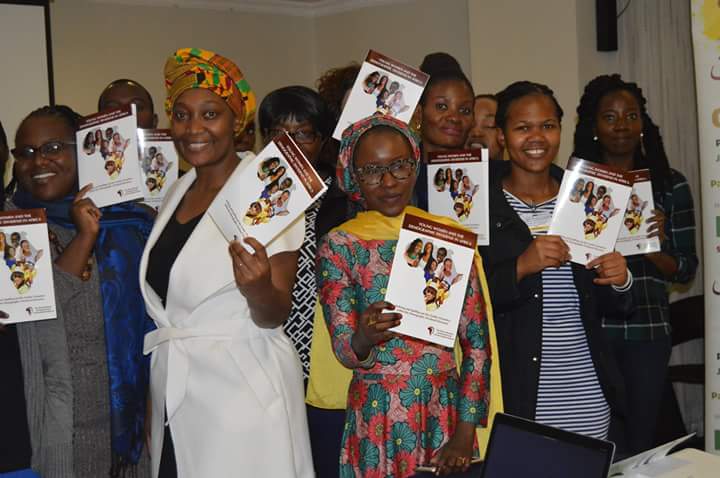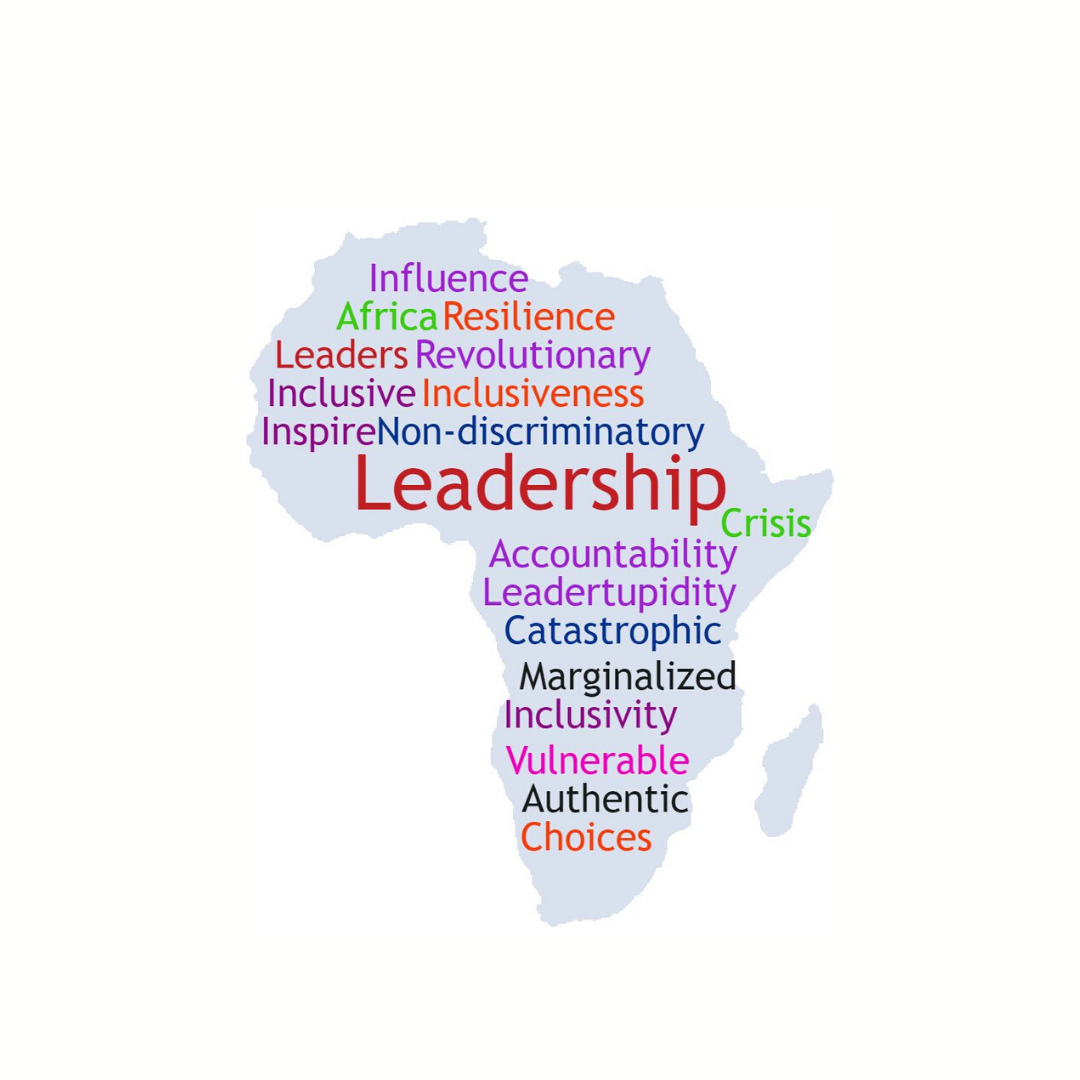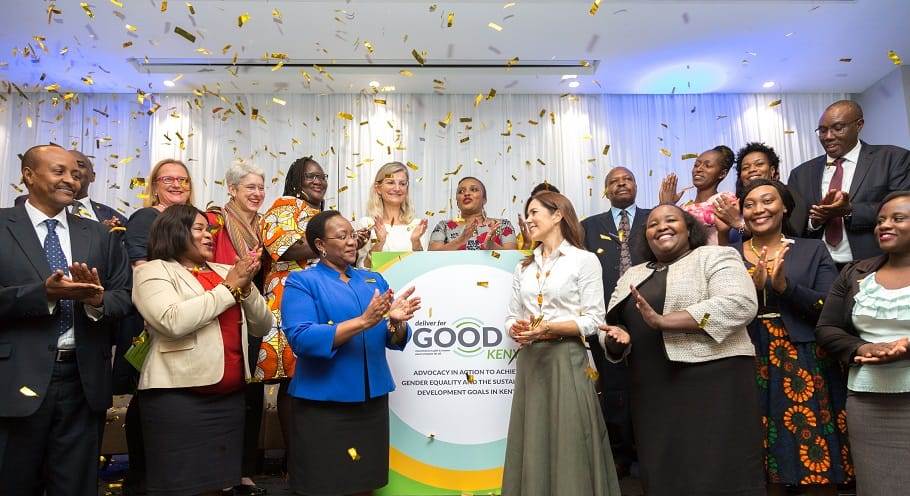
Africa’s Young women claim their rightful place at the AU Summit
By Catherine Nyambura
Africa’s young women have risen to the occasion and are grabbing their critical spaces at the pinnacle of the African Union.
The 2017 theme of the African Union;“Harnessing the Demographic Dividend through Investments in the Youth” offers a great opportunity in sustaining the “Africa Rising” and “Agenda 2063” narratives to seize the moment for significant transformation. For eons, discussions about young people have pivoted towards an androcentric (male-centred) perspective or are altogether gender blind.
Young women are still under-represented in civic spaces, including in politics, the economy, social affairs, science and technology.
Young women in different platforms have expressed concerns that they lack specifically designated spaces to explore and interrogate issues that affect them directly. They continue to be limited by social and cultural norms, face discrimination and lack access to support systems.
Young women are derailed from realizing their potential by challenges such as child early and forced marriages, female genital mutilation and other harmful practices. They are also challenged with unwanted pregnancies, limited access to education and inadequate access to health care
Our Voices, Our strength – Amplifying young women’s collective participation
At FEMNET, we recognize the urgency of integrating young African women voices and placing their needs at the core of development. This is especially critical as we continue to recognize young African women as agents of development and in facilitating partnerships networks and synergies amongst young African women.
FEMNET continues to offer a platform for young African women to lobby and advocate to policy makers, amplify their aspirations as well as input and influence Socio-economic, Political spaces and policies.
In January 2017, FEMNET organized an exclusive space for young African women at the 29th AU Summit to come together and highlight their priorities and aspirations of The Africa We Want. The session dabbed Young women’s black and white evening hang-out platform was created for young women to categorically discuss their needs, aspirations and priorities to ensure that efforts by African governments to roll out the implementation of 2017 roadmap on demographic dividend has a strong focus on women rights, gender equality and reflects the reality of young women who comprise half of the African youth population.
Brought together by the desire to see a gender equal Africa, the young women deliberated on possible ways of sustaining a strong young African women-led movement.
In the vibrant and engaging space, recommendations were made to compile a manifesto outlining priority issues for young women, possible solutions and strategic action points to follow through the agenda.
Story-telling and encounter-sharing from across the continent wound up the momentous discussion space where young women brought out the reality of their countries and the situations they operate in. These stories affirmed why it was important for every participant to continue advocating for young African women’s visibility in all levels of development.
Advocacy spaces:
Several advocacy platforms within the summit provided a significant platform for young women to be involved in various deliberations. These were; Gender Is My Agenda Campaign ( GIMAC) and the 4th African Union High Level Panel on Gender Equality and Women’s Empowerment
What young women want!
With the determined affirmation that the representation of Africa’s young women is key to harnessing the continent’s demographic dividend, young women at the AU 2017 summit make the following declarations;
- We demand that African governments adhere to international and regional commitments such as Convention on Elimination of All forms of Discrimination against Women (CEDAW), Beijing Platform for Action, and The African Charter on People and Human rights (Maputo Protocol) as well as constitutional Laws that protect the rights of all women, including young women!
- We call for renewed commitment in the eradication of harmful cultural practices including FGM and early forced marriages. These cultural practices enslave girls and young women in the cycle of poverty and curtail their involvement in social, political and economic development.
- We want adequate representation in decision making levels, to input and influence policy formulation at the national level as well as in civic spaces.
- We demand that political quotas such as a third gender affirmative action rule exclusively reserved for women remain as such. It is crucial for Heads of States to enhance security for women in politics and aspiring leaders including enactment of laws that repeal discrimination, harassment, shaming and sexual abuse especially during political campaign periods.
- We want to control our sexual and reproductive health rights (SRHR); we need access to Comprehensive Sexual Education (CSE) that is effectively implemented in schools curriculum across the continent for girls to become aware of their rights especially on SRHR like access to contraceptives, right to say NO to sex, reject harmful practice such as FGM and child marriage , understand what amounts to SGBV and menstrual hygiene.
- We acknowledge that Comprehensive Sexual Education facilitates eradication of gender stereotypes which reinforce harmful gender roles and enables prevailing patriarchy such as selective career choices and justification of SGBV, harmful practices and intimate partner violence.
- We want an Africa where both girls and boys are aware and informed that gender is not a deterrent to their achievements because governments have prioritized gender equality and women’s empowerment.
- We call for National governments to ensure and facilitate access to SRHR for all women through; efficient budget allocation for sexual and reproductive health-care, provision of effective and non-discriminatory medical personnel, availability and accessibility of contraceptives as well as access to safe and legal abortion, capacity building for the police on handling victims of SGBV and facilitation of monitoring and evaluation of SRHR projects to enhance accountability.
Catherine is the Advocacy associate at FEMNET, she can be reached at prog-associate@fement.or.ke and on twitter @catherinenyamb1
Related Tags
Related Posts
#COVID-19: Of Leadership vs ‘Leadertupidity’
The COVID-19 pandemic is a menace posing a threat to everyone, in every society. As of 2nd April
Learn MoreFEMNET 2018 Highlights
Dear Members, Partners & Friends, Happy & Spectacular 2019! I’m excited and truly grateful for your unwavering support
Learn More







